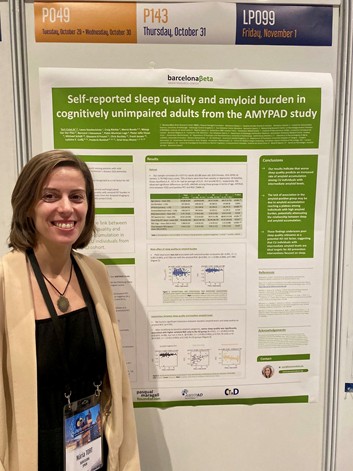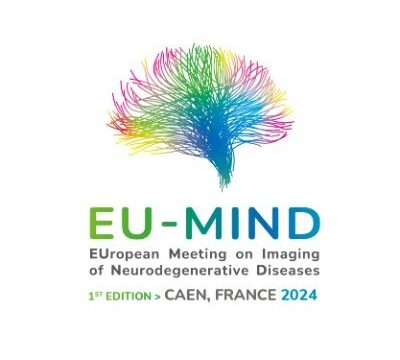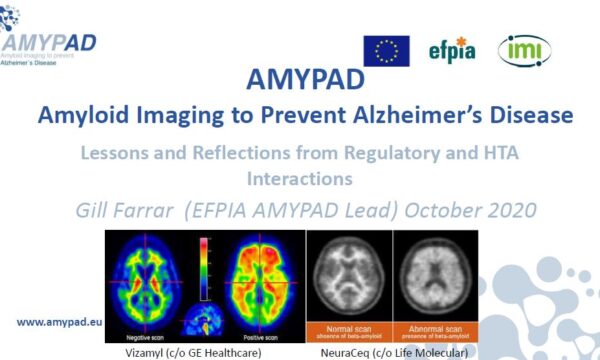At the 2024 Clinical Trials on Alzheimer’s Disease (#CTAD24) conference, held in Madrid from 29 October to 1 November, Núria Tort-Colet from the Barcelonaβeta Brain Research Center (BBRC) presented a poster titled “Self-reported Sleep Quality and Amyloid Burden in Cognitively Unimpaired Adults from the AMYPAD Study.”
Held annually, the CTAD conference is one of the world’s leading scientific gatherings focused on Alzheimer’s disease (AD) research. It serves as a platform for researchers, clinicians, and pharmaceutical experts to present the latest breakthroughs in AD trials, therapeutic interventions, biomarkers and prevention strategies.
Núria‘s presented work investigated the link between sleep quality and beta amyloid accumulation in the brain of people who show no signs of cognitive impairment. Sleep disturbances are known to be frequent in people with mild cognitive impairment (MCI) and AD dementia. The dataset included 527 adults without cognitive impairment, enrolled in the AMYPAD (Amyloid Imaging to Prevent Alzheimer’s Disease) study, of whom 75% were free from anxiety or depression.
The study’s results revealed no significant association between self-reported sleep quality and amyloid burden. However, a significant interaction was found when considering the relationship between baseline amyloid levels and sleep quality on the rate of amyloid accumulation. This interaction was noticeable in the grey-zone group. In contrast, no such interaction was observed in the negative or positive amyloid groups.
These findings suggest that worse sleep quality may serve as a predictor for the rate at which amyloid accumulates in people without cognitive impairment at intermediate levels of amyloid. The results of this study underscore the growing recognition of poor sleep quality as a potential AD risk factor, suggesting that people without cognitive impairment with intermediate amyloid levels are ideal targets for AD prevention interventions focused on sleep.



